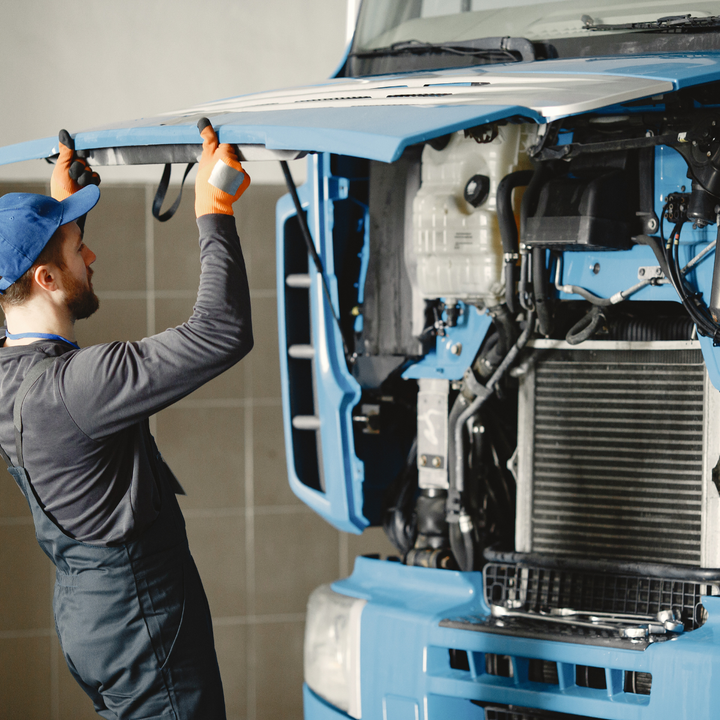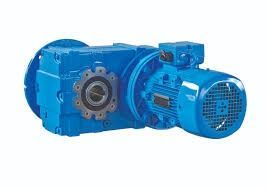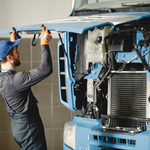
A Comprehensive Guide to Truck Mechanics
Truck mechanics play a crucial role in maintaining and repairing heavy-duty vehicles, ensuring their efficiency, safety, and longevity. This guide explores the various aspects of truck mechanics, including their benefits, limitations, types, modern trends, key features, top service providers, and tips on selecting the right service.
Introduction
Limitations of Truck Mechanics
Despite their importance, truck mechanics come with certain limitations:
-
High Maintenance Costs: Regular servicing and repairs can be expensive.
-
Downtime Issues: Trucks require time for maintenance, which may disrupt logistics.
-
Specialized Skills Required: Not all mechanics can efficiently handle heavy-duty trucks.
-
Availability of Spare Parts: Some models may have scarce or expensive parts.
-
Technological Complexity: Advanced trucks require knowledge of electronic and computerized systems.
Benefits of Truck Mechanics
Investing in truck mechanics provides several advantages:
-
Enhanced Safety: Regular maintenance reduces the risk of accidents.
-
Improved Fuel Efficiency: Well-maintained trucks consume less fuel.
-
Extended Lifespan: Proper care ensures durability and reliability.
-
Regulatory Compliance: Maintenance helps meet emission and safety standards.
-
Reduced Operational Costs: Preventive maintenance minimizes costly breakdowns.
Types of Truck Mechanics
Truck mechanics specialize in different areas based on vehicle requirements:
-
Diesel Truck Mechanics – Experts in diesel engines and fuel systems.
-
Transmission Mechanics – Focus on manual and automatic gear systems.
-
Brake System Specialists – Handle braking mechanisms and safety features.
-
Electrical System Technicians – Work with battery, wiring, and onboard electronics.
-
HVAC Mechanics – Maintain heating, ventilation, and air conditioning in trucks.
-
General Truck Mechanics – Cover a broad range of maintenance and repair services.
Modern Trends in Truck Mechanics
The trucking industry is evolving with technological advancements, including:
-
Telematics Integration: Real-time vehicle diagnostics and monitoring.
-
Predictive Maintenance: AI-based analysis for early fault detection.
-
Hybrid and Electric Trucks: Rising demand for eco-friendly vehicle mechanics.
-
Autonomous Truck Repairs: AI-driven diagnostics reducing manual efforts.
-
3D Printing for Spare Parts: Faster production and customization of truck components.
-
Mobile Truck Mechanics: On-site repair services minimizing downtime.
Key Features of a Reliable Truck Mechanic Service
When selecting a truck mechanic, consider these essential features:
-
Certified Technicians: Ensure expertise in handling heavy-duty vehicles.
-
Comprehensive Services: From routine maintenance to major repairs.
-
Advanced Diagnostic Tools: Use of modern equipment for accurate troubleshooting.
-
Availability of Spare Parts: Immediate replacement options for critical components.
-
24/7 Emergency Assistance: Support for roadside breakdowns.
-
Customer Reviews and Ratings: Reliable feedback from past clients.
Top Companies Offering Truck Mechanic Services
Several reputable companies specialize in truck maintenance and repair, including:
-
Rush Truck Centers – Comprehensive truck service provider.
-
FleetPride – Expertise in heavy-duty truck parts and repair.
-
Penske Truck Service – Nationwide maintenance and rental support.
-
Ryder Truck Service – Offers fleet management solutions.
-
Love’s Truck Care – Roadside assistance and repair services.
How to Choose the Right Truck Mechanic Service
To find the best service provider, follow these steps:
-
Check Certifications: Look for ASE or OEM-certified mechanics.
-
Evaluate Experience: Prefer mechanics with extensive industry knowledge.
-
Compare Pricing: Get quotes from multiple service centers.
-
Verify Tools and Technology: Ensure they use modern diagnostic systems.
-
Read Reviews: Check online ratings and customer testimonials.
-
Assess Service Guarantees: Look for warranties on repairs and parts.
Tips for Truck Maintenance
-
Regular Oil Changes: Prevents engine wear and tear.
-
Inspect Tires Frequently: Proper inflation and alignment improve fuel efficiency.
-
Monitor Brake Performance: Avoids potential accidents.
-
Check Fluid Levels: Ensures optimal operation of transmission and cooling systems.
-
Use Quality Parts: Enhances longevity and performance.
-
Follow Manufacturer Guidelines: Helps in warranty protection and compliance.
Customer Reviews and Feedback
Customers often highlight the importance of timely service, skilled mechanics, and fair pricing when reviewing truck repair services. Some common positive reviews include:
-
“Quick and efficient service with knowledgeable staff.”
-
“Affordable repairs and genuine spare parts availability.”
-
“Highly professional mechanics with modern diagnostic tools.” Negative feedback generally relates to long wait times and high costs for emergency repairs.
Conclusion
Truck mechanics play an essential role in ensuring the efficient and safe operation of heavy-duty vehicles. By understanding the benefits, limitations, modern trends, and service selection criteria, truck owners can make informed decisions for their maintenance needs. Investing in quality truck mechanic services leads to long-term savings, enhanced performance, and overall operational reliability.










